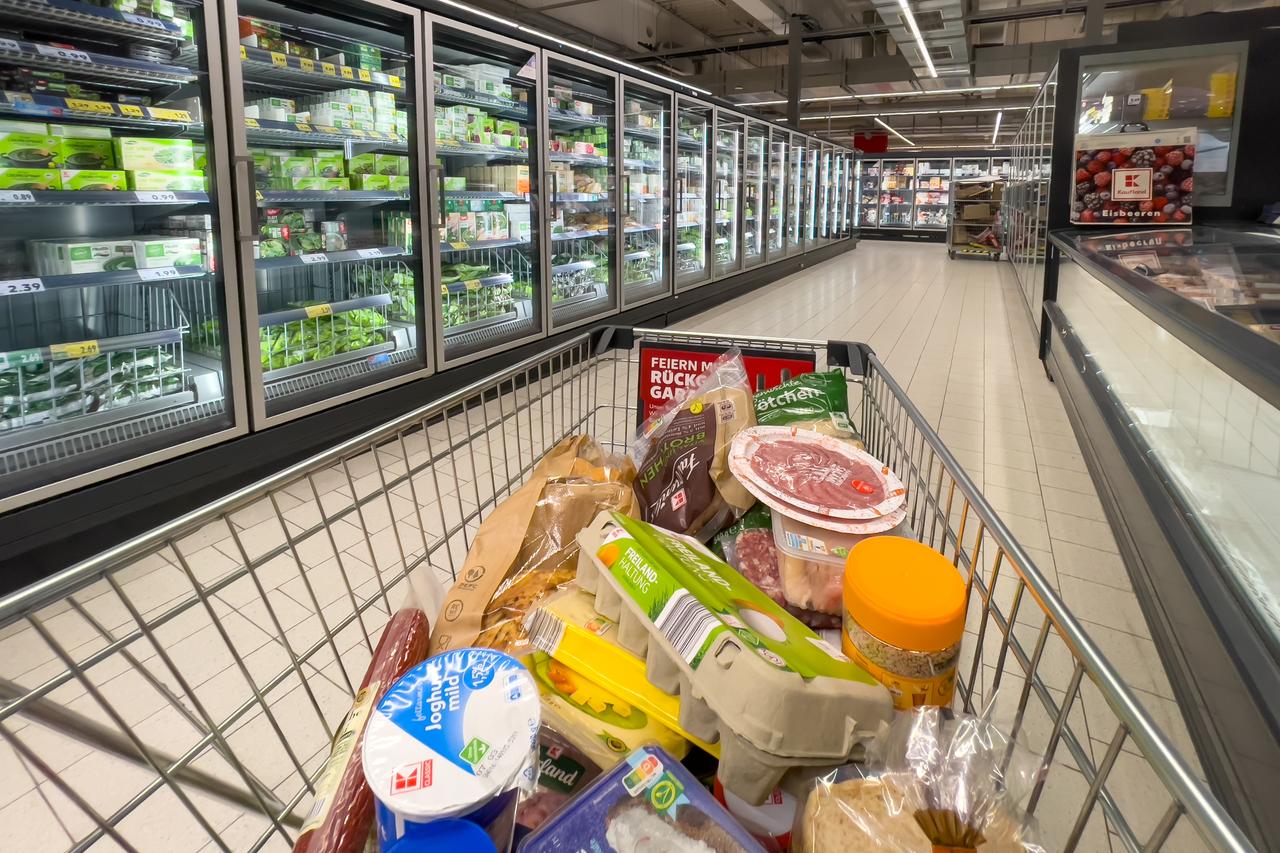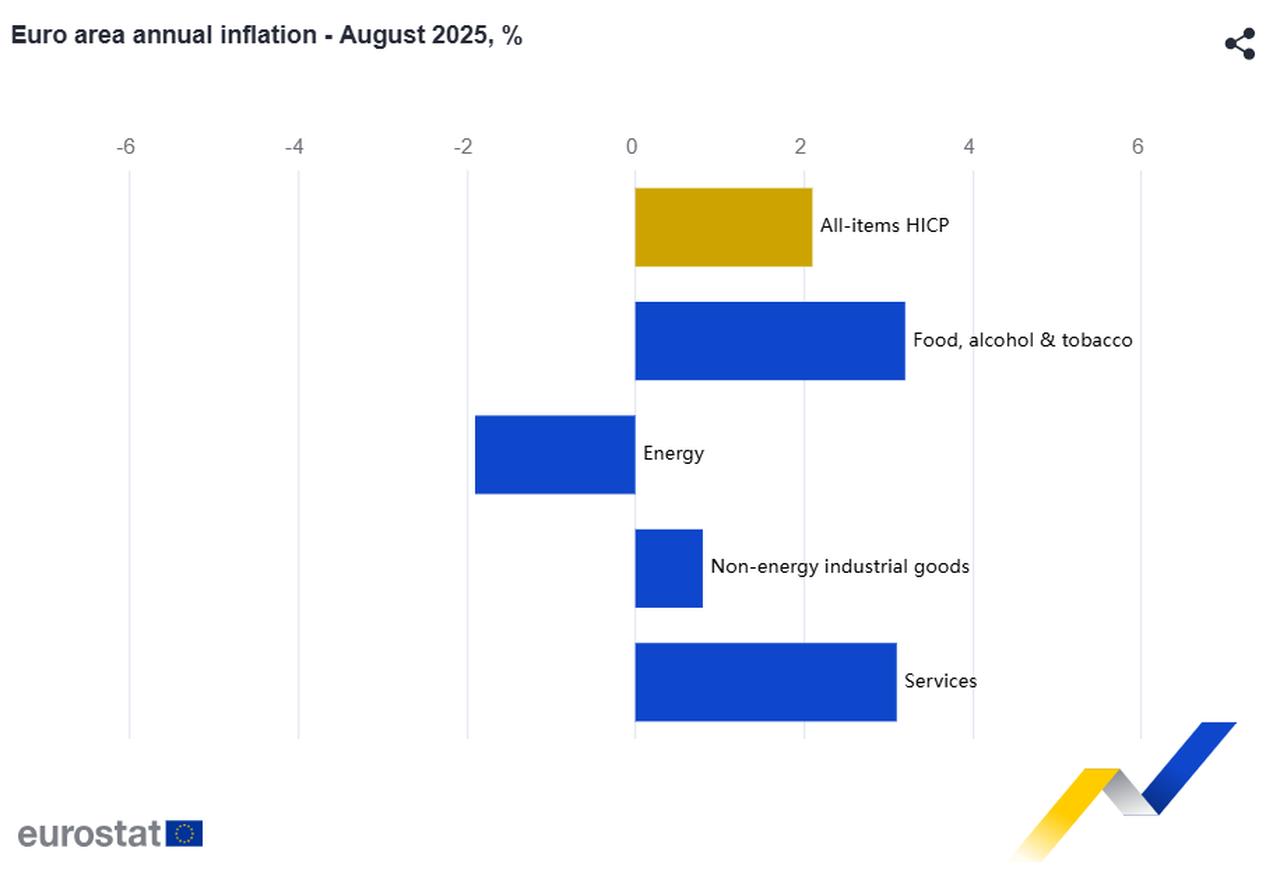
Annual inflation in the euro area rose slightly in August, up 0.1 percentage points to 2.7%, in line with expectations, Eurostat reported on Tuesday.
The increase was attributed mainly to a smaller decline in energy prices, which continued to fall but at a slower pace compared with the previous month.
The figure remains close to the European Central Bank’s (ECB) medium-term target of 2%, showing only a modest month-to-month increase.
Core inflation, which excludes volatile categories such as energy, food, alcohol, and tobacco, held steady at 2.3% in August. Economists often track this measure to assess underlying price pressures in the economy.
Food, alcohol, and tobacco prices rose by 3.2%, slightly lower than July’s 3.3%. Service prices also eased, increasing by 3.1% compared with 3.2% a month earlier. Prices of non-energy industrial goods, including items such as clothing and household equipment, remained stable at 0.8%.
Energy costs dropped by 1.9% in August, after a sharper 2.5% fall in July. While still negative, the smaller decline placed upward pressure on the overall inflation rate.

Analysts surveyed by Bloomberg had expected inflation to remain at 2.0%, the ECB's medium-term target. The actual uptick has reinforced expectations that the ECB will keep its interest rates unchanged at its upcoming monetary policy meeting on Sept. 11.
The ECB left rates steady in July, halting a sequence of consecutive cuts that had started in September 2024.